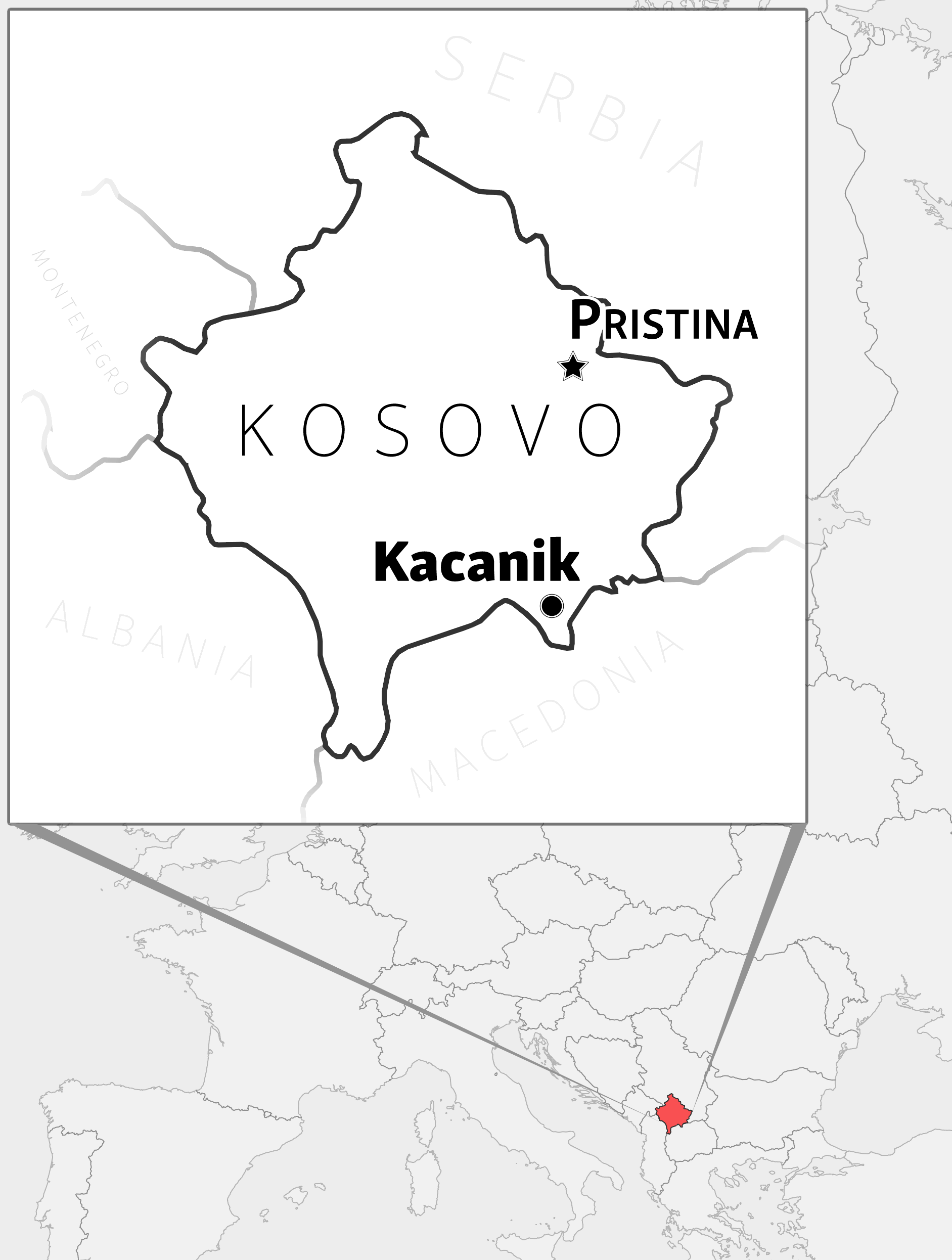JUNE 2016
Kacanik, KOSOVO – A plume of smoke hangs over our table in the corner of a dark, shabby café in this rugged town in southern Kosovo. The lanky 19-year-old sitting next to me is chain-smoking through half a pack of L&Ms, his hands trembling as he recalls how he joined one of the world's most brutal militant Islamist groups.
Through his neatly trimmed beard, Adem, who asks me not to use his real name for fear of arrest, says he had never even left Kosovo. But two years ago, he found himself on the perilous and far-off Turkey-Syria border -- a major entry point for foreigners seeking to join the ranks of Islamic State (IS).
He was taken by IS recruiters to a Turkish village, where he waited to be smuggled into a war zone. After a two-week training camp in the Syrian city of Raqqa, the de facto capital of the Syrian and Iraqi territory that the group calls its "caliphate," he would be assigned to a fighting unit.
Hours before the recruiters were to sneak him across the border, however, Adem turned back and made his way home.
"I realized that what was going on in Syria had nothing to do with Islam," says Adem, who keeps looking over his shoulder as if he might be found out at any moment by Kosovar authorities. He looks like any other teenager, in skinny jeans and a silver chain hanging over his T-shirt.
Jihadist Capital Of The Balkans
The government estimates that more than 300 Kosovars have traveled to the Middle East to wage jihad, or Islamic holy war. That makes this predominately Muslim country of under 2 million people, which unilaterally declared its independence from Serbia in 2008, Europe's biggest contributor per capita of IS foot soldiers.

Kacanik in particular has gained a reputation as the jihadist capital of the Balkans. In the past three years, at least 24 men from its population of 30,000 have left to fight for extremist groups like IS or Al-Qaeda in Syria and Iraq.
Adem's own path toward radicalization began when he received a Facebook invitation to attend a sermon hosted by an imam from a nearby town. He says he was "curious" about Islam. For the next five months, Adem attended sermons and Koran classes at a makeshift mosque where he and other young men lived.
The sermons were organized by Rinia Islame (Islamic Youth in Albanian), an Islamic charity operating in Kacanik. It is one among dozens of secretive organizations funded by Saudi Arabia and other Persian Gulf states that promote an extreme version of Islam. The groups are accused of brainwashing youth and recruiting them for extremist causes abroad.
Adem says the sermons he attended were "very strict and harsh." "They told us not to shake hands with women and don't go to cafes or bars," he says.
There are indeed mounting outward signs of Islamic fundamentalism in Kacanik, where it is no longer uncommon to see women in Islamic veils or men with untrimmed beards and calf-length trousers, none of which has much real tradition in the country.
As Adem tells it, the sermons worked their way up from Koran lessons, to the meaning of jihad, to the conflicts in Syria and Iraq.
"My family doesn't practice religion very much," says Adem, who lives with his parents and two sisters in a crammed flat in Kacanik. "Only my grandfather and I."

He says his family picked up on signs that he was becoming radicalized. "They said that if I want to practice religion, I can do it -- I can pray -- but not become a radical."
The sermons attended by Adem were given by Zeqirja Qazimi, a notorious imam who was jailed for 10 years on May 20 after he and six associates were convicted for fighting for IS militants in Syria from 2012 to 2014 and for trying to gather IS recruits.
"Imam Zekerija Qazimi came from Gjilan," says Adem, referring to a town in eastern Kosovo. "He was telling us about jihad."
Qazimi also posted a video on YouTube in which he said that the "blood of infidels is the best drink for us." Local media reported that Qazimi was responsible for recruiting 11 Kosovar fighters to IS; three were said to have been killed in Syria.
When I ask whether Adem has been threatened since turning his back on the extremists who radicalized him, his answer belies the bloodthirsty reputation of a group that routinely kills captives en masse and is said to ruthlessly execute suspected traitors. "I've never felt danger," he says. "It was my decision."
The Middle Eastern-funded charities have penetrated poor, rural communities like Kacanik that have been neglected by the government and where unemployment is around 40 percent, making young men easy targets for indoctrination.
The Islamic charities often run schools, dormitories, and welfare programs. But they also push a hard-line agenda that appears to have gained at least a minor foothold in Kacanik.



